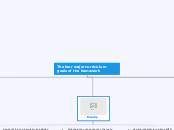The four major curriculum goals of the framework

Content
Geography
• How did the distant regions of the world become more interconnected through medieval and early modern times?
• Increasing human impact on the natural and physical environment, including the diffusion of plants, animals, and microorganisms to parts of the world where they had previously been unknown.
• How did the environment affect the expansion of agriculture, population, cities, and empires in Mesoamerica and the Andean region?
Economics
• How did the environmental conditions and technological innovations cause the medieval economic revolution? What were the effects of this revolution?
• How did increasing interconnection and trade, competition between states (and their people), and technological innovations lead to voyages of exploration?
• What is capitalism? What are its benefits and problems?
History
• How did the Mongol Empire destroy states and increase the interconnection of Afroeurasia?
• How did the Reformation divide the Christian Church, millions of people, and European states?
• What were the effects of the Renaissance and the Scientific Revolution?

Inquiry
• What were the results of the Industrial Revolutions? How was technology, and the environment transformed by industrialization?
• How do the French, American, and Haitian Revolutions compare to one another?
• What were the consequences of trying to implement political revolutionary ideas in Europe, Latin America, and North America?
• How did industrial revolutions affect governments, countries, and national identity in similar and different ways?
• How was imperialism similar and different between colonies in Africa, Asia, and Latin America?

Citizenship
• How did the federal government grow between the late nineteenth and twenty-first centuries?
• What are key tenets of American democracy?
• Why did women want the right to vote and how did they convince men to grant it to them????
• What rights and responsibilities does a citizen have in a democracy?
• What problems are posed by representative government and how can they be addressed?

Literacy
Cite specific textual evidence to support analysis of
primary and secondary sources, attending to such
features as the date and origin of the information.
Determine the meaning of words and phrases as
they are used in a text, including vocabulary
describing political, social, or economic aspects of
history/social science.
Analyze how a text uses structure to emphasize key
points or advance an explanation or analysis.
Assess the extent to which the reasoning and
evidence in a text support the author’s claims
Analyze in detail a series of events described in a
text; determine whether earlier events caused later
ones or simply preceded them.
